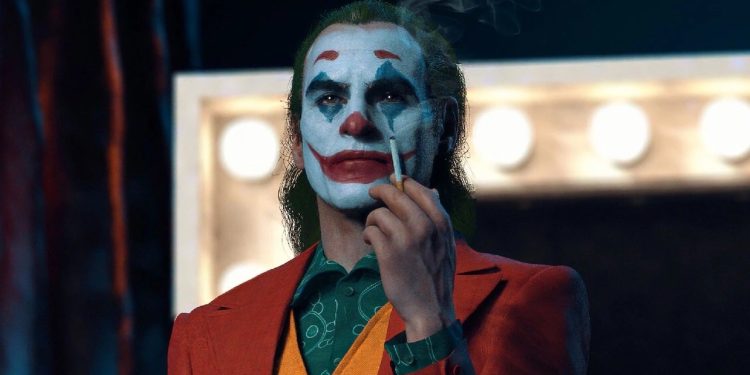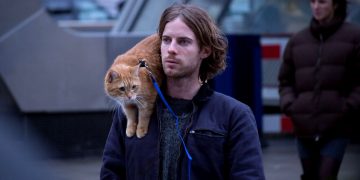The 2008 superhero film “The Dark Knight,” directed by Christopher Nolan, is to be credited with turning the Joker into one of the most well-known and revered characters and has said some of the best quotes in his movies. With his outstanding portrayal as the Joker, Heath Ledger firmly cemented the figure in the hearts of fans. In his most recent film, Joker, Joaquin Phoenix is another performer who has rendered the Joker immortal and given him a wholly different incarnation (2019).
The beginning of Arthur Fleck, a man scorned and humiliated by society, is depicted in this film. He has a neurological disorder that causes him to chuckle uncontrollably at unsuitable circumstances. He was a budding comedian who was harassed and assaulted by several thugs, and he takes up the rifle and turns to violence when ridicule and misery become intolerable. Joker has without a doubt been one of the most talked-about movies in recent years.
Some people appreciated the film for Joaquin Phoenix’s Oscar-winning performance and its realistic portrayal of the comic book genre, but it also generated a lot of controversy. The film examines a man who is suffering and a city that is ignoring him in a horrible way.
Although Arthur Fleck’s worldview is unsettling, it also offers fascinating insights about the individual. Many of the Joker’s comments have remained memorable for audiences for years after their premiere.
Todd Phillips, who previously created The Hangover and its sequels, directed and co-wrote the film. Zazie Beetz, Frances Conroy, Shea Wigham, and Brett Cullen all have supporting roles in the movie. They create a hard R-rated comic book movie that is unlike anything we’ve seen previously with Phoenix and DeNiro.
Table of Contents
Toggle30. Arthur: “The Worst Part Of Having A Mental Illness Is People Expect You To Behave As If You Don’t.”
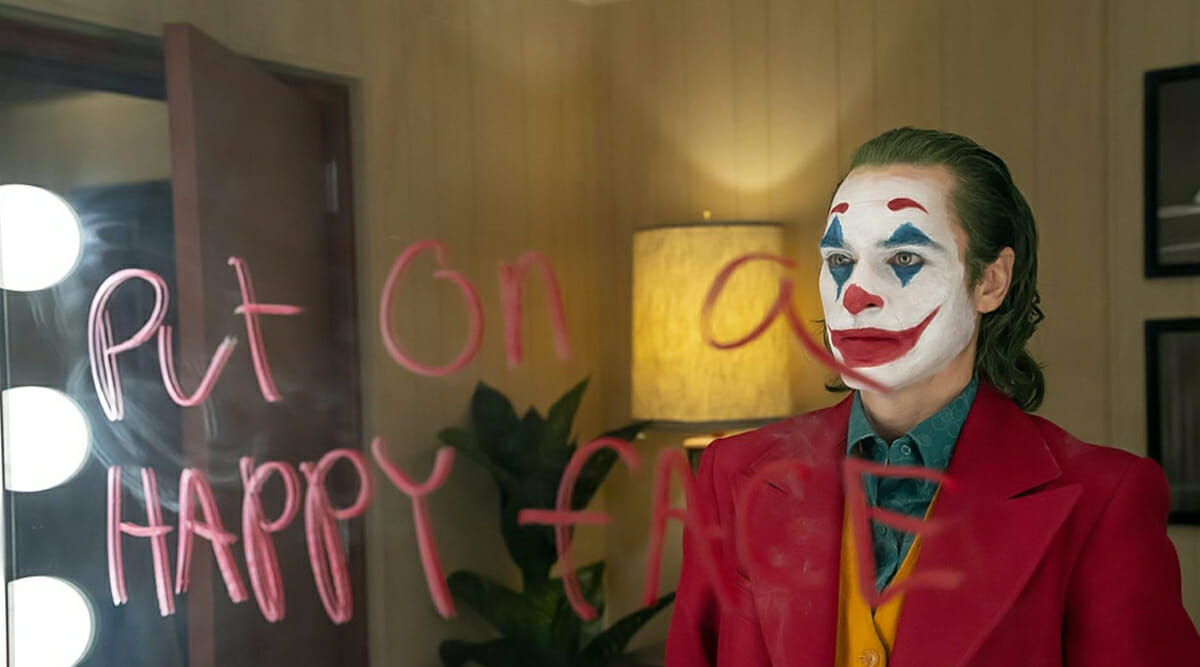
Joker is mostly about the investigation of having a mental health illness and how society reacts to it then it is about a violent and dark take on the comic book movies, which is probably how many people went into this movie expecting it to be. Despite Arthur’s serious mental illness, we don’t witness any compassion for him.
This is relevant to how he feels about being disregarded. The worst aspect of having a mental illness is that people will expect you to act as if you don’t, according to one insightful and tragic entry in his notebook.
29. Arthur: “I Know. Isn’t It Beautiful?”
Whilst the comic book character Joker is an anarchist who orchestrates a variety of cunning schemes, Arthur is a quite different kind of villain.
Despite being lost and all alone, he continues to inadvertently inspire others with his violent behavior. It’s a worrying turnabout from Batman’s own goal of becoming a Gotham icon. They were led down a path of violence and devastation by Arthur, who became that emblem. Following his arrest, Arthur looks around and exclaims, “Isn’t it beautiful?” Really, the bad guy won.
28. Sophie: “Your Name’s Arthur, Right? You Live Down The Hall. I Really Need You To Leave, My Little Girl ‘s Sleeping In The Other Room. Please.”
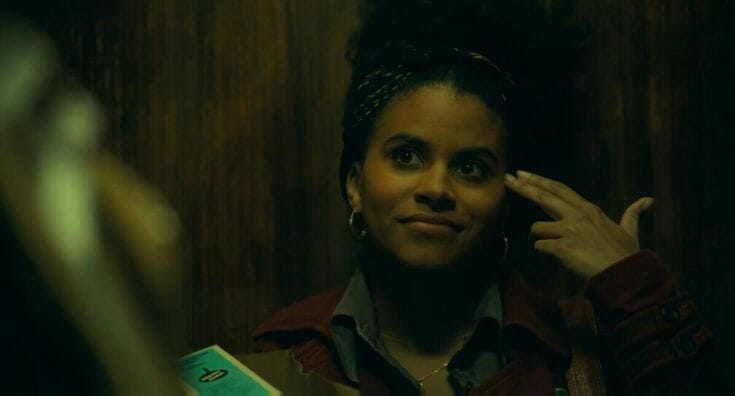
Despite the fact that nothing at all in his life appears to be going well, Arthur does meet someone. Sophie, his amiable next-door neighbor, develops feelings for Arthur and starts dating him even as he descends further into violence. When Arthur learns that Penny Fleck, his biological mother, had actually adopted him, his entire world falls apart.
He finds out she and her partner were the ones who physically abused him, which makes things worse. When he goes to Sophie’s apartment, he tells her he’s had a tough day and sneaks in. The plot twist occurs when he realizes that all of their past romantic encounters were purely imaginary and never took place.
However, it was plainly going to go south in the end. She is shocked to see Arthur in her living room when he admits himself into her flat. She first tells him that he is in the incorrect apartment before confirming his name is Arthur.
27. Arthur: “I Used To Think That My Life Was A Tragedy. But Now I Realize, It’s A F***ing Comedy.”
The tragedy of Arthur’s character is that he genuinely wants to make people smile and laugh, but the universe does not want him. Despite how challenging his life is, he makes an effort to keep a positive attitude.
But when more burdens fall upon him, it becomes impossible to endure. Arthur changes his perspective after he learns about the trauma he suffered as a child and goes to see his mother in the hospital. It seems as though he can only chuckle now that things have grown so horrible for him.
Despite how challenging his life is, he makes an effort to keep a positive attitude. But when more burdens fall upon him, it becomes impossible to endure. Arthur changes his perspective after he learns about the trauma he suffered as a child and goes to see his mother in the hospital. It seems as though he can only chuckle now that things have grown so horrible for him.
26. Arthur: “I Haven’t Been Happy One Minute Of My Entire F***ing Life”
Arthur makes an effort to be approachable despite his internal troubles. He makes an effort to make others laugh, enjoys other people’s jokes, and makes an effort to be kind to everyone he meets.
He eventually reveals to his mother that he has never been content, though. It’s a terrible view of the character who attempts to make people happy while yet struggling with such deep emotions. The film offers an intriguing perspective on those who are struggling but are nonetheless expected to smile by the community.
25. Arthur: “I Hope My Death Makes More Cents Than My Life.”
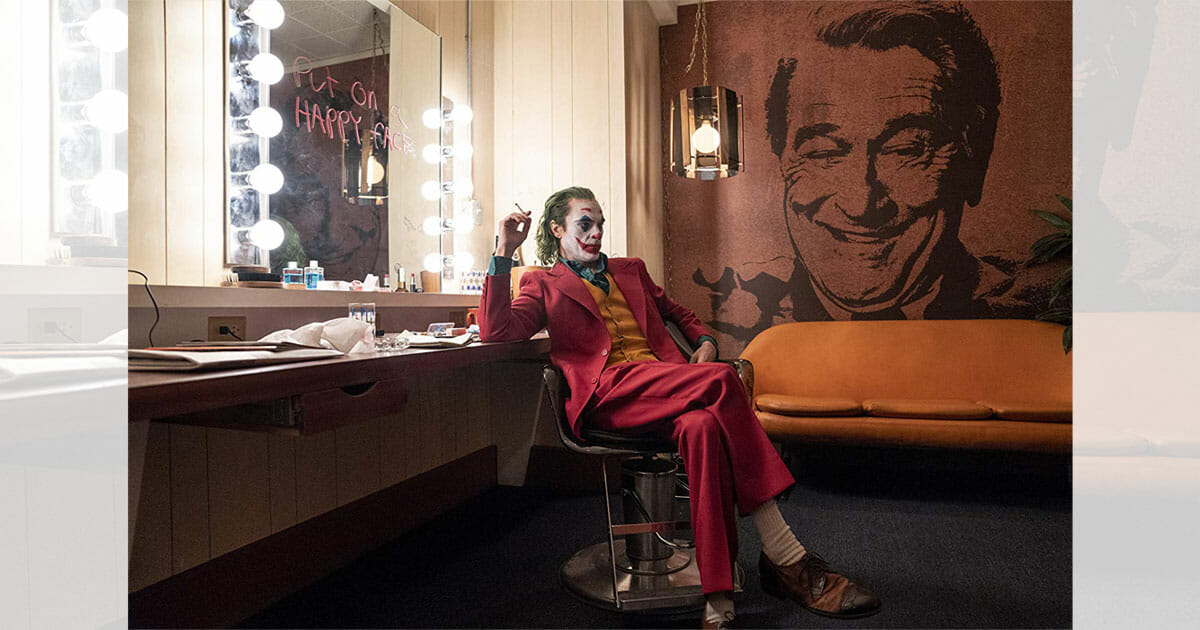
Tragically, Arthur’s goal of becoming a stand-up comedian never materialized, which prompted him to pursue a far darker goal instead. But it also offers an intriguing glimpse into his troubled thinking. As shown by his “joke journal,” Arthur doesn’t seem to understand comedy the very same way that others do.
He frequently writes the words “I hope my death makes more money than my life” among other odd ideas and scrawlings. It suggests that Arthur is unhappy with his life right now while also persuading him that he was destined for something more.
24. Arthur: “For My Whole Life, I Didn’t Know If I Even Really Existed. But I Do And People Are Starting To Notice.”
Following the subway killings, Arthur exhibits a newfound vigor and appears to have come up with a sinister plan.
More troublingly, his homicidal deeds appear to serve as an example for other hopeless residents of the city. Finally, Arthur notices that he is being noticed, which feeds into his sense of significance. He unintentionally became the face of Gotham’s revolution and is prepared to continue on this sinister course in order to stop being ignored.
23. Thomas Wayne: “What Kind Of Coward Would Do Something So Cold-Blooded? Someone Who Hides Behind A Mask.”
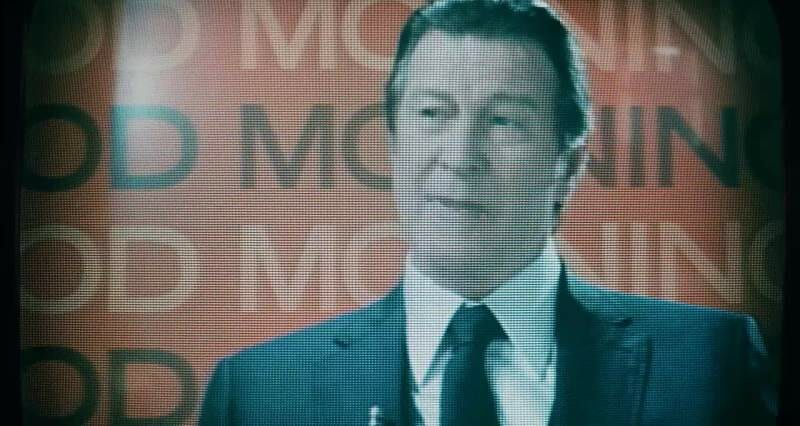
Thomas Wayne appears in the film in a far different light than fans have ever seen him. He is a self-absorbed man of privilege who disregards the concerns of the less privileged, not the devoted businessman who wants to use his money to support the public of Gotham.
Reports about a vigilante wearing a clown mask surface after Arthur murders a few violent men on the train. Wayne expresses his own viewpoint on cowards who conceal themselves behind masks. This is really a not-so-subtle allusion to his son’s future, and it creates an intriguing connection between Batman and the Joker. A similar scene happens at the Wayne Manor too.
22. Arthur: “You Don’t Listen, Do You?”

A major topic of Joker is the idea of being forgotten and disregarded. Arthur is a man who is having a hard time in life and needs assistance, but no one cares. He expresses his unhappiness with that sensation when he meets with his social worker.
Arthur bemoans the fact that he is neglected even in this setting where he is meant to receive assistance as she informs him that their program is being cut. He wants people to pay attention to what he has to say. He becomes more and more desperate to be noticed as the story progresses.
21. Arthur: “Is It Just Me Or Is It Getting Crazier Out There?”
In Batman mythology, Gotham is frequently shown to be in ruins before Batman shows in to save the day. Even more desolate is the Gotham has shown in Joker. The 1970s setting lends the location a gritty quality, and it constantly feels like a city on fire.
Arthur’s decline probably has a lot to do with the circumstances in Gotham. As the movie opens, Arthur talks to his social worker and expresses his distress at how bad things have become. It is a somber foreshadowing of how terrible things will turn out by the movie’s conclusion.
20. Arthur’s Card: “Forgive My Laughter. I Have A Condition”
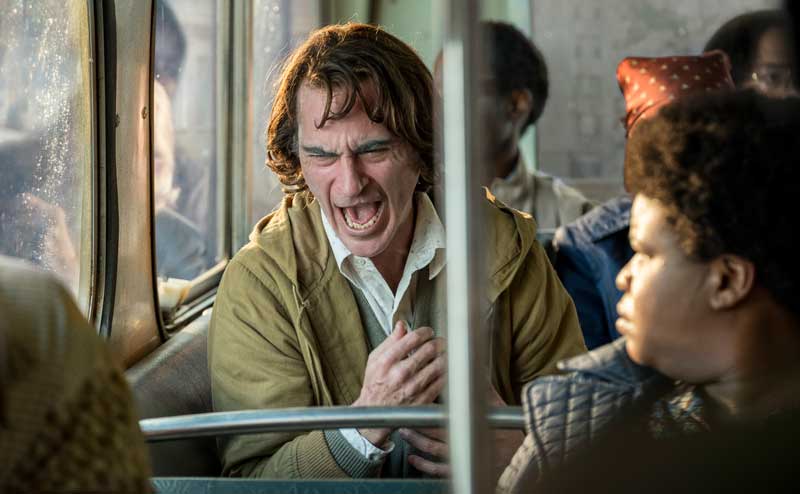
His chuckle is one of the most crucial aspects of the Joker’s persona. The way the movie handles this issue is really intriguing, with Arthur’s conditional chuckle being something he cannot control. People do experience this situation, and it offers an intriguing opportunity to reconsider the well-known character. When Arthur chuckles, it comes across as hurtful, further alienating him from others. The explanation card he always carries with him shows a depressing image of a tortured man.
19. Arthur: “Comedy Is Subjective, Murray, Isn’t That What They Say? All Of You, The System That Knows So Much: You Decide What’s Right Or Wrong The Same Way You Decide What’s Funny Or Not.”
In addition to being very intense and horrifying, Arthur’s triumphant appearance on the chat show in Joker is also perverse. Arthur exposes himself to the world after choosing his dangerous new course. Arthur uses the chance to finally speak out against the hypocrisy he finds in society, despite the fact that he was only brought on the show to be the punchline. It also suggests that his more sinister humor, which some people would find unnerving, will eventually come to define who he is.
18. Social Worker: “They Don’t Give A Sh*t About People Like You, Arthur. And They Really Don’t Give A Sh*t About People Like Me Either.”

It is difficult not to feel sympathy for Arthur as you see him battle his numerous problems throughout the film and hope that he could get support. Phoenix obviously plays darker characters, but he succeeds in making the viewer care about the individual.
However, the majority of Gotham residents are also affected by the subject of injustice, not just Arthur. The chaotic finale is ultimately caused by the fact that those in authority don’t even care that they exist, as pointed out by Arthur’s own social worker.
17. Arthur: “When I Was A Little Boy And Told People I Was Going To Be A Comedian, Everyone Laughed At Me. Well, No One’s Laughing Now.”
With his desire for a career in stand-up comedy, it is obvious that Arthur has a detached attitude toward reality throughout the narrative. He believes it to be what he was always intended to do and doesn’t even seem to consider the possibility that it might not be the best course of action. Even more tragically, Arthur doesn’t seem to recognize when people are laughing at him rather than with him. Nevertheless, “no one’s laughing now” offers a disturbing premonition of what Arthur’s kind of humor would eventually develop into.
16. Arthur: “Oh Come On, Murray. Do I Look Like The Kind Of Clown That Could Start A Movement? I Killed Those Guys Because They Were Awful. Everybody Is Awful These Days. It’s Enough To Make Everyone Crazy.”
The killing of the men on the subway acts as a catalyst for all the resentment that has been building in Gotham City. It is obvious that Arthur never intended to be the leader of some uprising, despite the shift his acts brought about.
When he confessed to killing those individuals on the talk program, he said that his motivation was simply because he didn’t like them. His statements, however, give the impression that anyone might have carried out the same action.
15. Arthur: “I’ve Got Nothing Left To Lose. Nothing Can Hurt Me Anymore. My Life Is Nothing But A Comedy.”

It is remarkable how the film offers potential antecedents for the character, even though it is difficult to envision Arthur Fleck ever evolving into the Joker fans know from Batman history.
This version is far more sorrowful than the manic criminal one. This comment illustrates how his mind might be distorted to view the world in such a twisted humorous manner. Arthur relies on humor now that he has lost everything, and his sense of humor has evolved into something quite unpleasant.
14. Arthur: “You’re the only one that’s ever been nice to me.”

When Arthur first learned that Randall had betrayed him by telling the employer a falsehood about the gun, he was devastated. He finally snapped when he realized Randall was attempting to trick him and take advantage of him once more.
But he was aware that Gary, as opposed to Randall, was actually there to try and comfort him in light of the loss of his mother. Because of this, Arthur thanked Gary in person before releasing him. Just watch Arthur’s gazes as he turns to see Gary and then Randall as he opens the door for them. While the Joker may be psychotic, he is a sharp observer of character.
13. Arthur: “My mother always tells me to smile and put on a happy face. She told me I had a purpose: to bring laughter and joy to the world.”
Even though his mother was not the best mother out there but they still loved each other dearly.
12. Arthur: “For my whole life, I didn’t know if I even really existed. But I do, and people are starting to notice.”

In the movie “Joker,” a homicidal narcissist who believes he is entitled to the public’s attention kills someone for a good laugh instead of letting society treat him as its punchline.
The film also explores the dehumanizing impacts of a capitalist system that lubricates the economic ladder and blurs the distinction between personal worth and wealth accumulation until life loses its intrinsic meaning.
11. Arthur: “I think I felt better when I was locked up in the hospital.”

This is what he replies to his social worker after she asks him if he feels better to have someone to talk to.
10. Arthur: “Everybody is awful these days. It’s enough to make anyone crazy. If it was me dying on the sidewalk, you’d walk right over me. I pass you everyday and you don’t notice me!”
The Joker’s alter ego is a lonely, wounded man who survives on the meagre wages he receives from working as a clown for hire while sharing a dismal apartment with his mother (Frances Conroy).
Fleck is taunted by stealing poor children and drunken affluent men, prodded to murder by the cruelty of society. He feels his crush on his next-door neighbor (Zazie Beetz) might be reciprocated. He compiles stand-up material in a notebook and works up the courage to perform on stage at an open-mic night at a club.
9. Arthur: “I know it seems strange, I don’t mean to make you uncomfortable, I don’t know why everyone is so rude, I don’t know why you are; I don’t want anything from you. Maybe a little warmth, maybe a hug dad, maybe a bit of common decency!”
Society treats unsuccessful stand-up comic Arthur Fleck harshly and rudely because he has a medical condition. Throughout the entire film, he must put up with a lot of abuse, bullying, and trolling.
So, in addition to the strong performance, this movie also exposes the terrible reality of society’s hypocrisy.
8. Arthur: “But, you know, this stuff, the lights, the show, the audience, all that stuff, I’d give it all up in a heartbeat to have a kid like you.”
The script was written by Phillips and Scott Silver. Phillips transports us to the dreary past of Gotham City when there was no job, vermin ran amok, and a garbage strike polluted the streets.
Fleck is taunted by stealing poor children and drunken affluent men, prodded to murder by the cruelty of society.
7. Arthur: “Have you seen what it’s like out there, Murray? Do you ever actually leave the studio? Everybody just yells and screams at each other. Nobody’s civil anymore. Nobody thinks about what it’s like to be the other guy. Do you think men like Thomas Wayne ever think about what it’s like to be someone like me? To be somebody but themselves? They don’t. They think that we’ll just sit there and take it, like good little boys! That we won’t werewolf and go wild!”
You won’t ever get tired of this scene, as well as every time you view it, you’ll be in awe. In an allusion to Murray’s ridicule, Arthur begs that Murray announce him as the Joker before the show goes live.
The mood shifts when Arthur engages in inappropriate behavior delivers macabre jokes, confesses to the train killings, rants about how society rejects the weak and mentally sick, and chastises Murray for making fun of him in the previous episode. Arthur enters to cheer.
Arthur shoots Murray in the head on live television as Murray starts to lose interest in him and threatens to call the police. For that, may God bless the great Robert De Niro and in particular the gifted Joaquin Phoenix.
6. [Arthur is making a little kid laugh on the bus]
Boy’s Mother: Would you please stop bothering my kid?
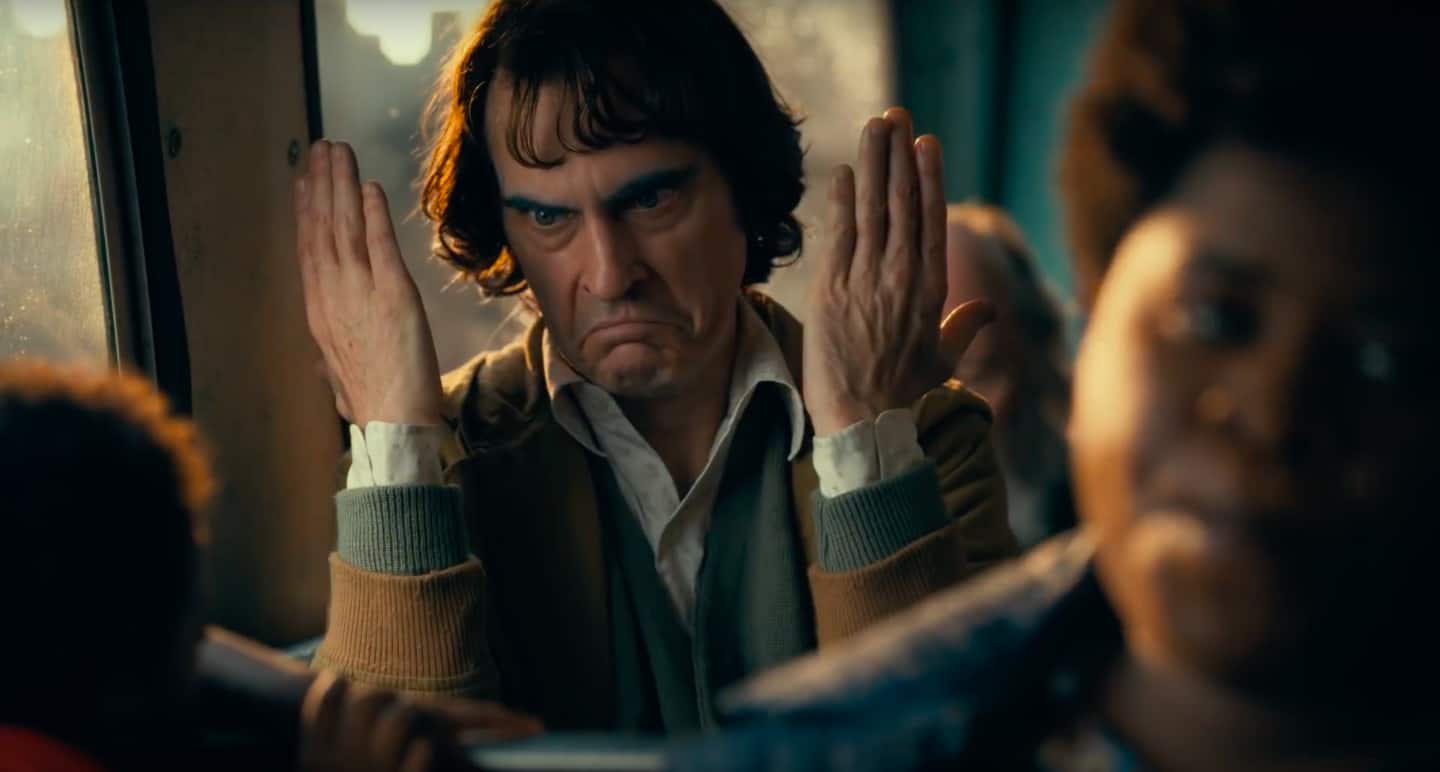
When a young child’s mother orders Arthur to quit pestering the child, Arthur is still attempting to make the child laugh.
He has to explain why he started laughing before he can stop. This is another sad scene where it shows how one’s reaction can affect the other.
5. Penny Fleck: I never heard him crying, he’s always been such a happy little boy.

Penny, like her son, suffers from mental illness. She was in charge of allowing her ex-boyfriend to torture Arthur while he was a toddler and was briefly admitted to the Arkham State Hospital due to her allegations of having an affair with Thomas Wayne.
4. Arthur: “What Do You Get When You Cross A Mentally Ill Loner With A Society That Abandons Him And Treats Him Like Trash? I’ll Tell You What You Get! You Get What You F***Ing Deserve!”
Arthur is invited to appear on Murray Franklin’s late-night program, and there is a terrible feeling that something horrific will happen. Indeed, Arthur uses this opportunity to introduce his Joker identity and demand accountability from the community. Arthur berates Murray and others for how they treat people like him after admitting to killing the guys on the subway. Warner Brothers Arthur, now a fully developed Joker, appears on Murray Franklin’s program and frankly admits to killing the three Wall Street men live on television.
Arthur responds matter-of-factly to Franklin’s perplexing question about how he can believe his confession by asserting that he is no longer afraid of anything.
This is when it really starts to get dark.
He then makes one final joke “What do you get when you cross a mentally ill loner with a society that abandons him and treats him like trash? You get what you f**kin’ deserve!” The most horrifying scene in the movie occurs when he then murders Murray on live television.
3. Arthur: “Can You Introduce Me As Joker?”
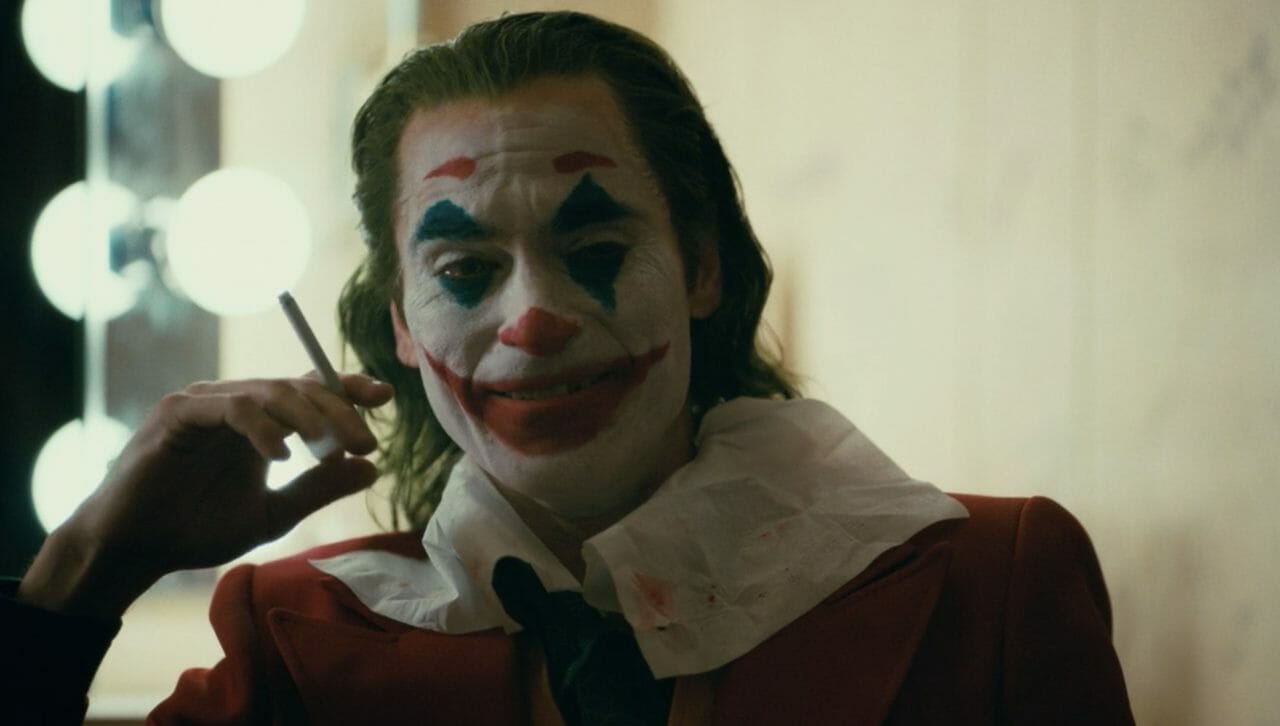
In preparation for his big appearance on Murray Franklin’s show, Arthur requests to be presented as the Joker, finally assuming the moniker. The movie uses the opportunity to further redefine the character when it could have been incredibly awkward.
The moniker Joker is repurposed as a person who is discarded and looked down upon, embracing the epithet heaped upon him, rather than referring to the character’s mischievous nature. Given what happens subsequently, it is also a clue of Arthur’s sinister retaliation against Murray for the manner he made fun of him.
2. Arthur: “You Wouldn’t Get It.”

The movie proceeds to tinker with the concept of reality as it follows Arthur on his gloomy quest. Later it is discovered that events are the result of Arthur’s thinking. This brings us to the conclusion, which raises the idea that Arthur may have made the whole thing up as a “joke.”
When Arthur is being held in Arkham Asylum after being hailed on the streets during the riots, the picture cuts away swiftly. The doctor asks him if he wants to share the joke while he laughs. He only says, “You wouldn’t get it,” leaving the unsettling issue of what is going through his mind.
1. Arthur: “You Just Ask The Same Questions Every Week. ‘How’s Your Job?’ ‘Are You Having Any Negative Thoughts?’ All I Have Are Negative Thoughts.”
The frightening hypothesis raised by the film is that if more people had listened, a bad guy like the Joker would not have come into existence. Arthur is aware of his illness and desires assistance, but his downward spiral is brought on by the lack of support he receives from society.
In their meeting, Arthur berates his caseworker for repeatedly asking the same questions and showing little interest in the responses. Once more, no one responds to his plea for assistance. Phoenix delivers this sentence, which is both sorrowful and terrifying, to perfection.
